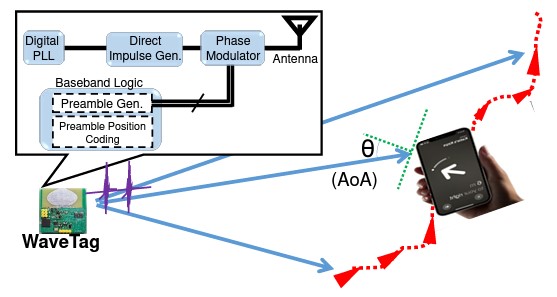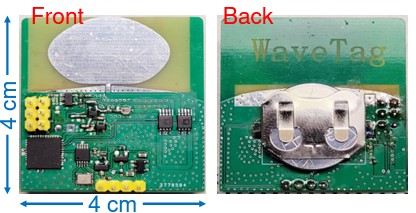Existing tracking solutions are challenged by cost, deployment, maintenance, and energy
The global market for smart beacon, tracking tags is expected to reach $39.6B by 2027, with smart tag tracking resulting in 98 percent inventory accuracy and a payback period of one year or less. Trackers deliver real-time visibility in asset and inventory tracking for supply chain, retail, and logistics. Existing smart tagging technologies are challenged with expensive dedicated RFID reader deployments, expensive and maintenance-prone tags, and inaccurate readings in supply chain application.
Low-cost wireless tags with real-time functionality enhance asset and inventory tracking
Researchers at Georgia Tech have developed a highly accurate, low-cost, ultra-low-power, maintenance-free wireless tag that delivers real-time asset and inventory tracking. The passive wireless tag costs less than $1 to manufacture, operates for several years, can be tracked to under 1m accuracy, and can be read by off-the-shelf smart devices. Overall, the combination of high accuracy, low cost, ultra-low power consumption, maintenance-free operation, and compatibility with off-the-shelf devices makes this wireless tag system a highly attractive solution for asset and inventory tracking needs. Its real-time tracking capabilities and cost-effectiveness open possibilities for enhanced efficiency, improved supply chain management, and streamlined inventory control in a wide range of industries.
- High-accuracy tracking: Tracks to under 1m accuracy, which is not offered in existing tracking solutions from competitors.
- Low cost: Each passive tracker costs under $1 and can be used for several years, whereas existing trackers cost between $30-$40 per tag and only operate for 2-3 months.
- Ultra-low power: These passive trackers provide a multi-year operational lifetime that eliminates maintenance and battery replacement.
- Works with commodity smartphones: Compatibility with commodity devices eliminates the high cost of implementing technology-specific infrastructure needed by current RFID tracking systems.
- Supply chain logistics inventory and asset tracking
- Retail inventory tracking

Figure 1: Overview of WaveTag

Figure 2: WaveTag’s PCB Prototype
